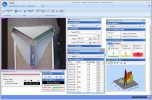Authors
E. Burguière, A. Arabo, F. Jarlier, C. De Zeeuw, L. Rondi-Reig.
Lab
Universite Pierre et Marie Curie, Memory and Aging Team, Paris, France.
Journal
The Journal of Neuroscience
Abstract
Learning a new goal-directed behavioral task often requires the improvement of at least two processes, including an enhanced stimulus-response association and an optimization of the execution of the motor response. The cerebellum has recently been shown to play a role in acquiring goal-directed behavior, but it is unclear to what extent it contributes to a change in the stimulus-response association and/or the optimization of the execution of the motor response. We therefore designed the stimulus-dependent water Y-maze conditioning task, which allows discrimination between both processes, and we subsequently subjected Purkinje cell-specific mutant mice to this new task. The mouse mutants L7-PKCi, which suffer from impaired PKC-dependent processes such as parallel fiber to Purkinje cell long-term depression (PF-PC LTD), were able to acquire the stimulus-response association, but exhibited a reduced optimization of their motor performance. These data show that PF-PC LTD is not required for learning a stimulus-response association, but they do suggest that a PKC-dependent process in cerebellar Purkinje cells is required for optimization of motor responses.
BIOSEB Instruments Used:
Smart 3.0 - Video Tracking System (SMART30)

 Pain - Thermal Allodynia / Hyperalgesia
Pain - Thermal Allodynia / Hyperalgesia Pain - Spontaneous Pain - Postural Deficit
Pain - Spontaneous Pain - Postural Deficit Pain - Mechanical Allodynia / Hyperalgesia
Pain - Mechanical Allodynia / Hyperalgesia Learning/Memory - Attention - Addiction
Learning/Memory - Attention - Addiction Physiology & Respiratory Research
Physiology & Respiratory Research
 Pain
Pain Central Nervous System (CNS)
Central Nervous System (CNS) Neurodegeneration
Neurodegeneration Sensory system
Sensory system Motor control
Motor control Mood Disorders
Mood Disorders Other disorders
Other disorders Muscular system
Muscular system Joints
Joints Metabolism
Metabolism Cross-disciplinary subjects
Cross-disciplinary subjects Preclinical studies and opioids: role in crisis management in the United States
Preclinical studies and opioids: role in crisis management in the United States 